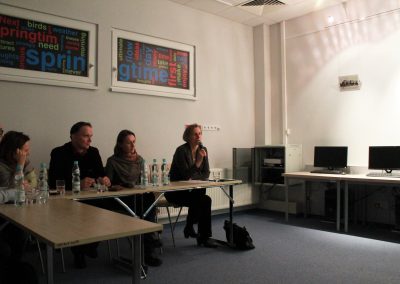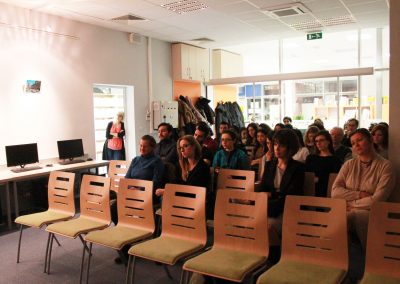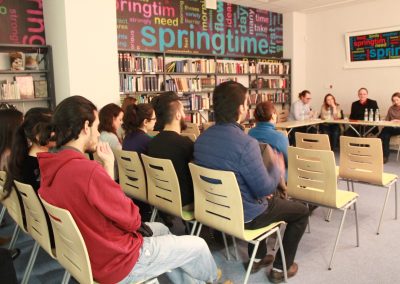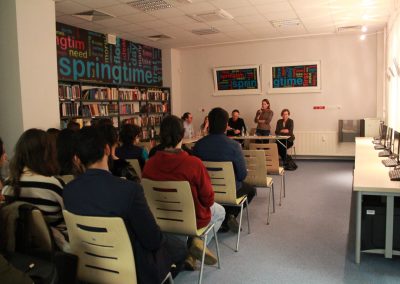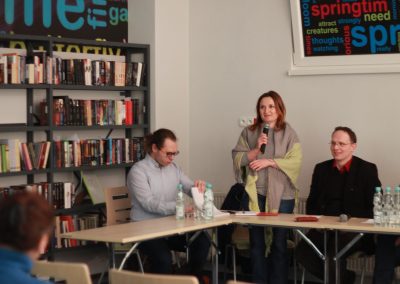On Wednesday we met in the Municipal Library Fil. 4 to participate in the debate entitled Gender ideology(ies): Man and woman – different by nature, inequal by society? We tried to find the answer to this question with our four guests: sociologists Borys Cymbrowski and Anna Czerner, philologist Katarzyna Molek-Kozakowska and biologist Elżbieta Pogoda.
We were aware that for most people the term gender is unfamiliar or even unfriendly, especially when someone is not a philologist or a social researcher, so we started with the basic questions: what gender is, how it exists in our respective fields of studies, and if there exists gender ideology. We can say that gender in general is about social consequences of being men, women or the others, because in the opinion of Elżbieta Pogoda even from a biological point of view there are more than only two sexes. And there is no evidence that one sex has an advantage over another.
In Polish media we encounter some false beliefs about the meaning of the word “gender”. But as Borys Cymbrowski mentioned it is a problem of confusion of nature with culture, because in the Polish language we have only one word (płeć) for gender and for sex. So some commentators confuse biological meaning with the cultural one. They accuse gender scholars of promoting a dangerous ideology which tries to convince people to choose their sex. As Anna Czerner said, the truth is that in the social sciences gender was a neutral category to analyse the relations between people in society, but unfortunately some institutions and politicians took one of the least popular topics in gender studies and used it as a basis to create and apply gender ideology as a political tool.
After that we focused mostly on language aspects within gender issues. Katarzyna Molek-Kozakowska indicated that for her it was easier to introduce herself in English than in Polish, because in Polish most names of academic professions have only a masculine gender, or even if it has a female gender, masculine forms sound more serious and more prestigious. But language is not a constant phenomenon – it is changing all the time. Twenty years ago we considered some female forms of words as strange, but today we take them for granted. We concluded that it is important to include more women-related forms to language, and it is one of the main catalysts of social changes in the public sphere.
We are really glad we could discuss it with you and with the citizens of Opole. We would like to thank you all for your presence and participation, and we hope to see you soon during another discussion. The aim of the whole debate was to clarify a little the problem of gender, but two hours is a short time when you are discussing such an important and complicated topic – so we treat this meeting only as a start. The debate is still open.
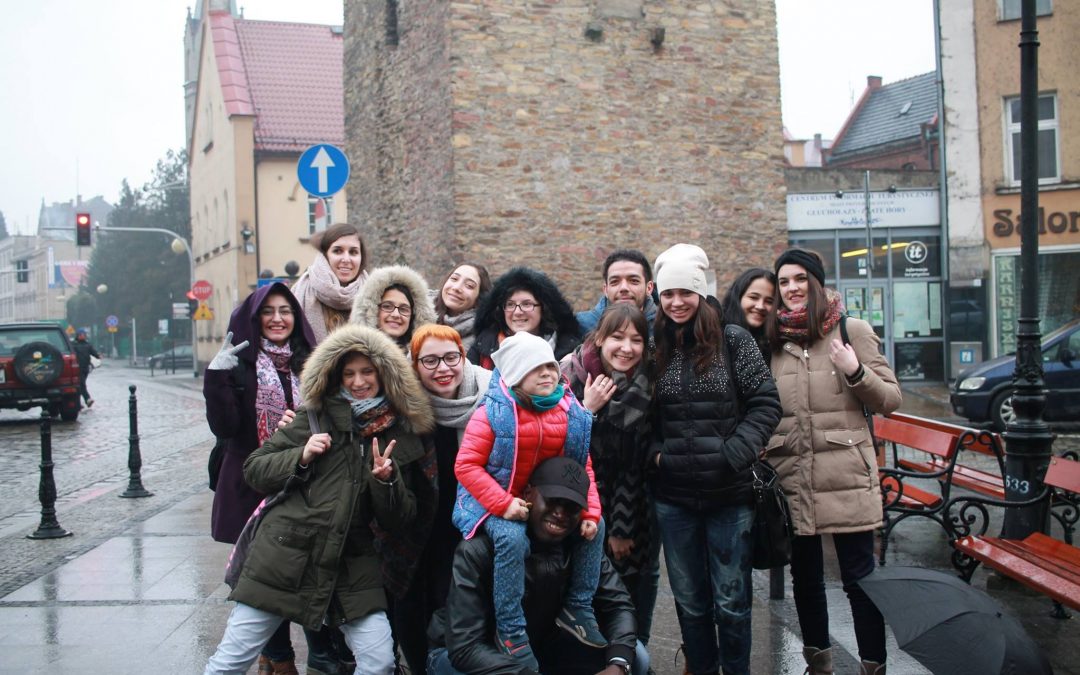
Intercultural Workshop in Głuchołazy
The future, as the adage goes, is always beginning now. It is a good motto which can be applied to the latest experience of the regular and Erasmus exchange students who participated in the workshop with high school students in Głuchołazy. I had a chance to be a...
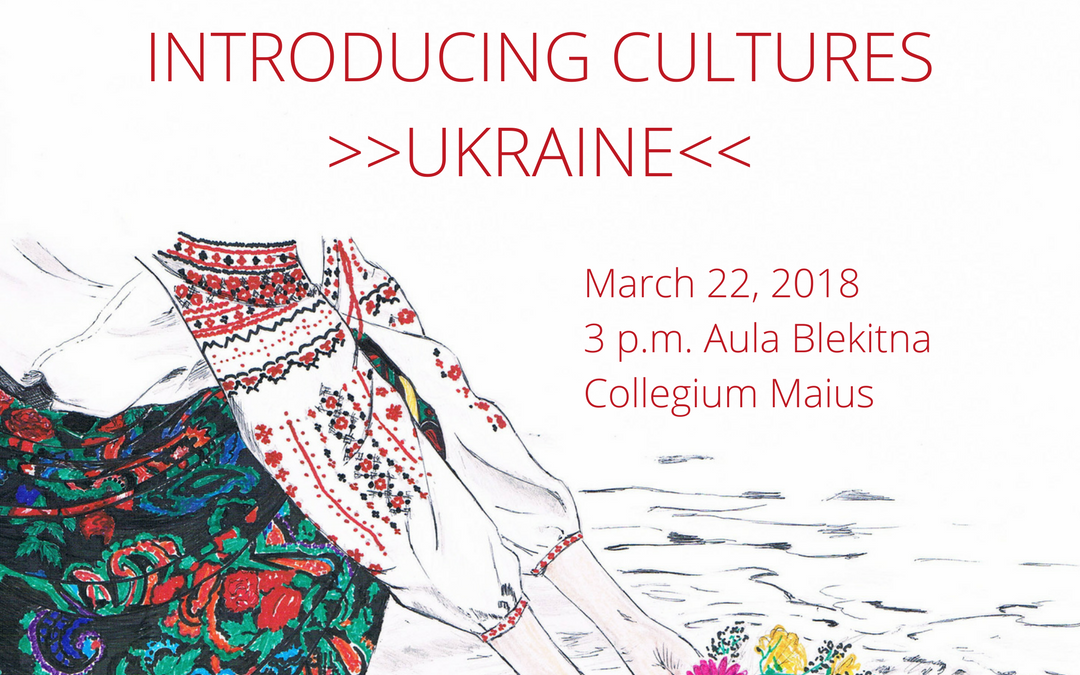
Introducing Cultures, Ukraine
Dear Students, We are sure you know a lot about Ukraine, the country so close to the Polish border with its citizens so numerous in Poland. Nevertheless, there are still so many interesting facts that you might be ignorant of. Our Sociology and Philology students will...
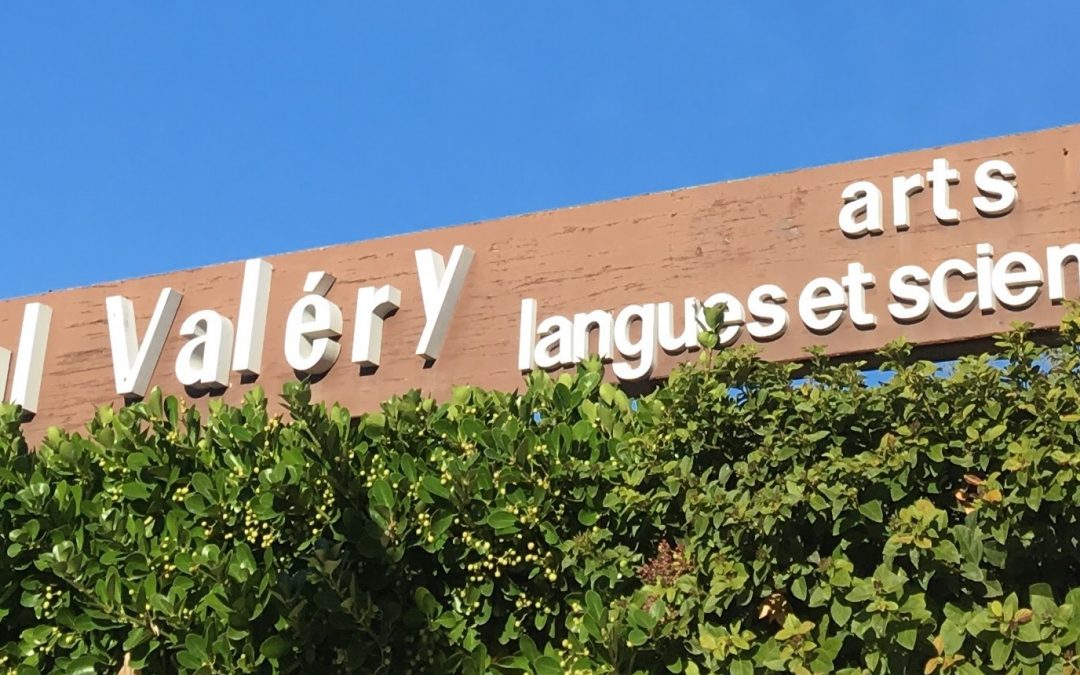
Pre-Doctoral Summer School – University Paul-Valéry Montpellier 3
Dear students, Paul Valéry University of Montpellier, our partner institution, organizes its first Pre-Doctoral Summer School 'Heritage Development and Valorisation, Cultural Economy and Public Action, which will be held from July 2nd to July 28th 2018. This...
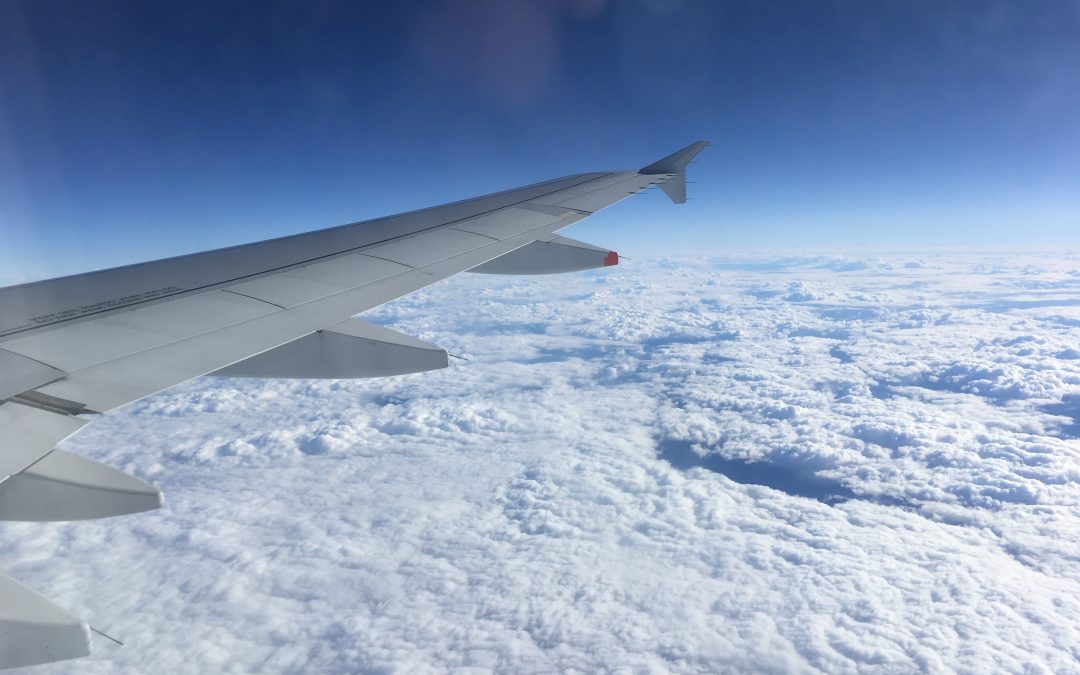
Let your passion fly – first steps into your career!
Dear students, Next Wednesday, March 14, 2018, from 1 p.m. till 3 p.m., you all are invited to the workshop organized by Academic Careers Centre of the University of Opole. Let your passion fly - first steps into your career. Sounds great, doesn’t it? It will be held...
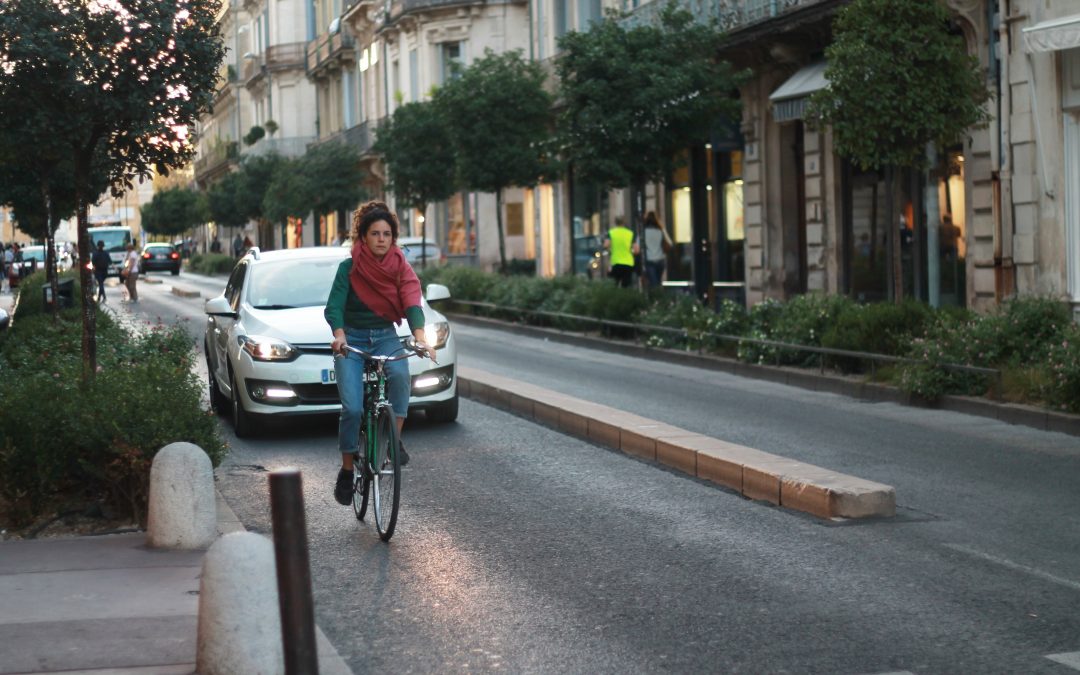
Discover Europe – photo contest for students
Discover EuropePhoto Contest for StudentsIf you are into photography and European values and culture, we encourage you to participate in the biggest photo contest for students Discover Europe. You can apply for participationto, sending your works to the organisers...
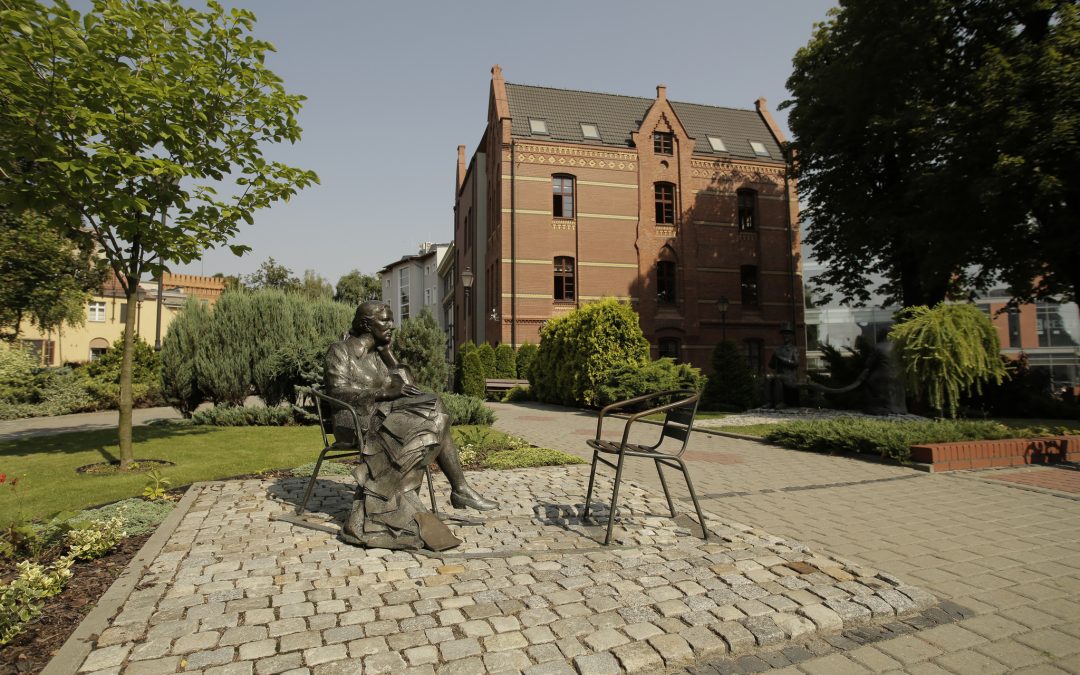
University Day, 9 March 2018
Dear students, This Friday, on March 9, 2018, all classes will be cancelled on the occasion of the celebration of the University Day.
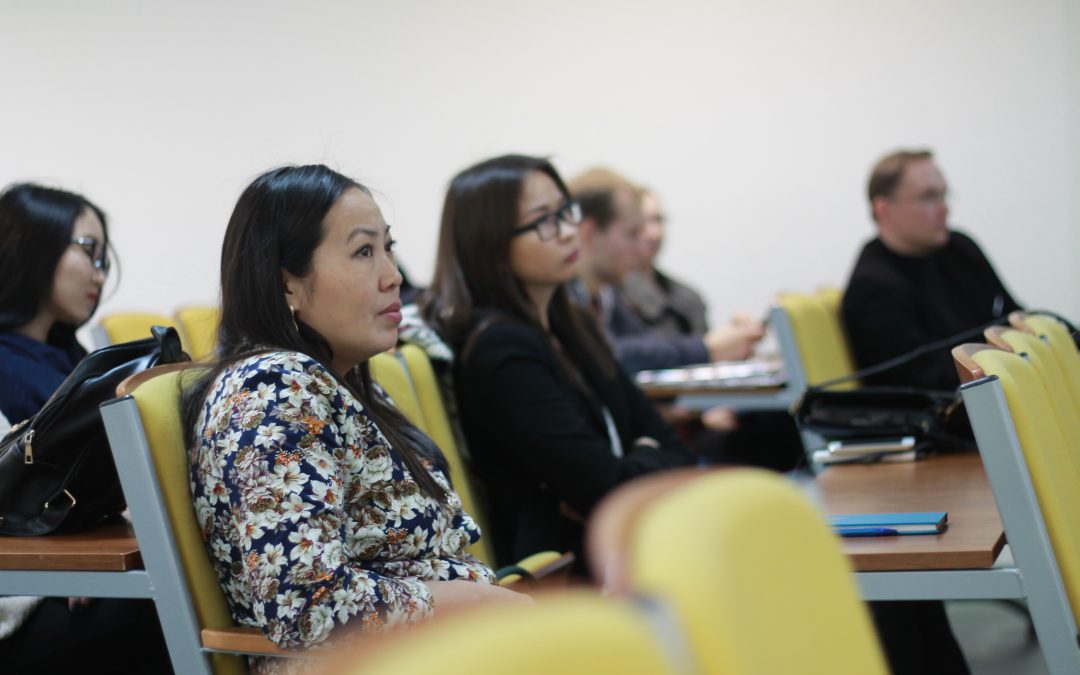
Interdisciplinarity and Transdisciplinarity – Science for Society and Human Beings, 17-18 April 2018
is an inclusive conference on the state of contemporary academia held as part of Central European International Week by the University of Opole This conference is devoted to multiple aspects of interdisciplinarity and transdisciplinarity in various national and...
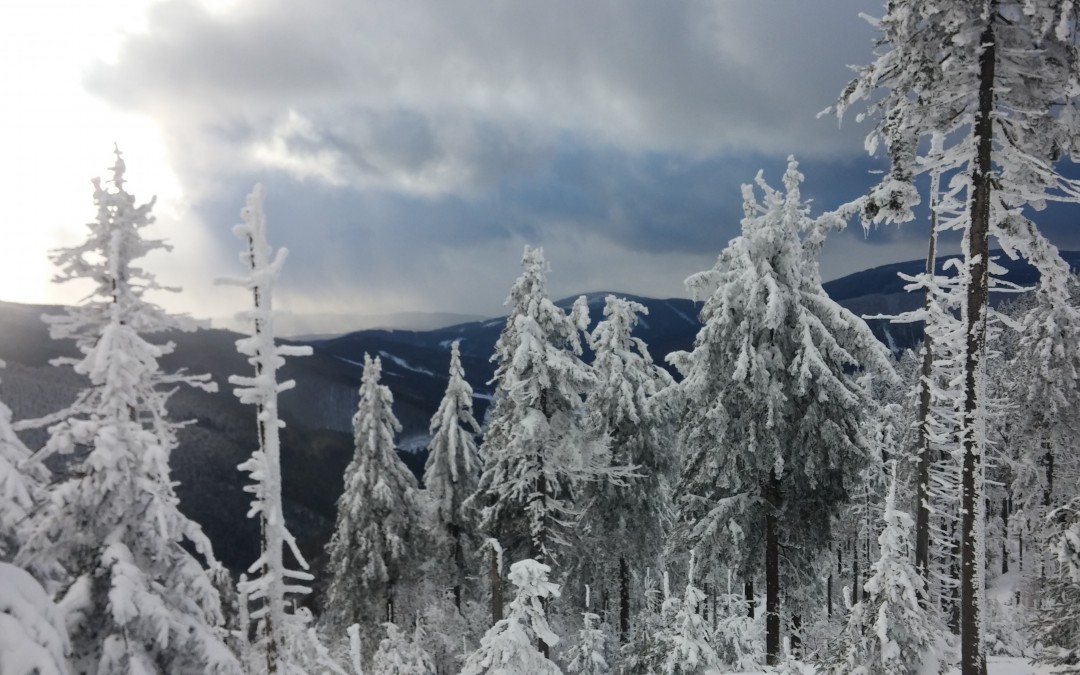
XIV Charity Ice Speedway Gala
help for franek zgoda Ice Speedway Gala is an annual charity event, organised in Opole for the 14th time. The event will take place on February, 24 at 5 pm. at Toropol Ice Skating Rink (Barlickiego 13). Tickets are available at Toropol, Tabaco shop (Krakowska 30), and...
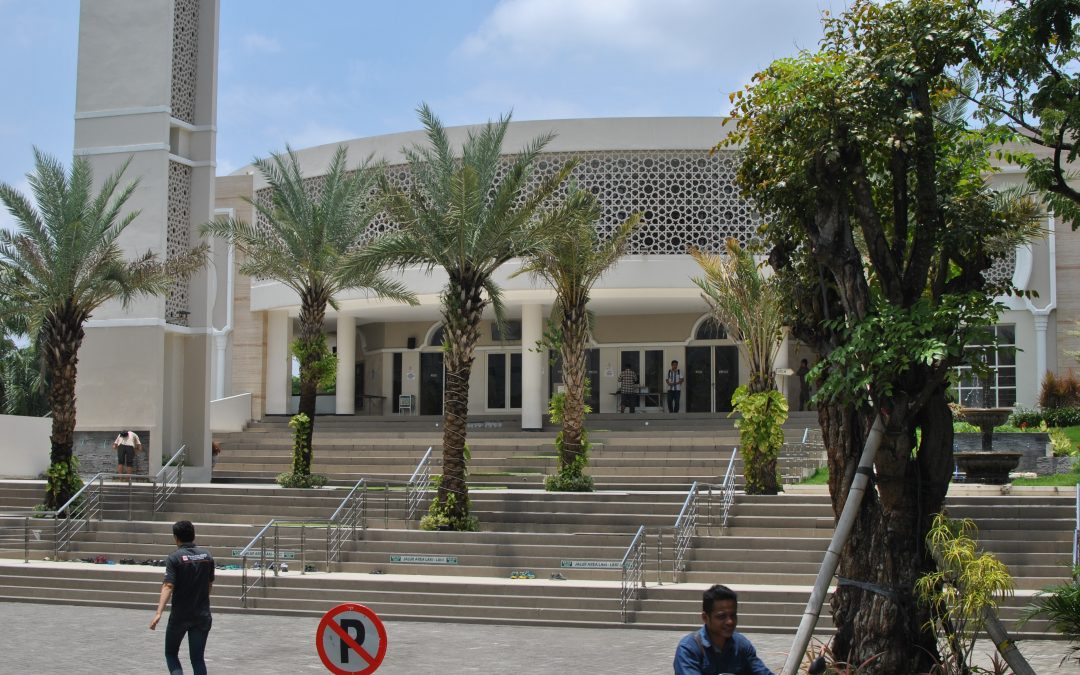
Summer in Surabaya-Bali
summer in indonesia Summer in Surabaya – Bali: Society Empowerment through Sociopreneurship is a summer programme created by three universities in eastern part of Indonesia: Universitas Airlangga, Petra Christian University, and Udayana University. During the...
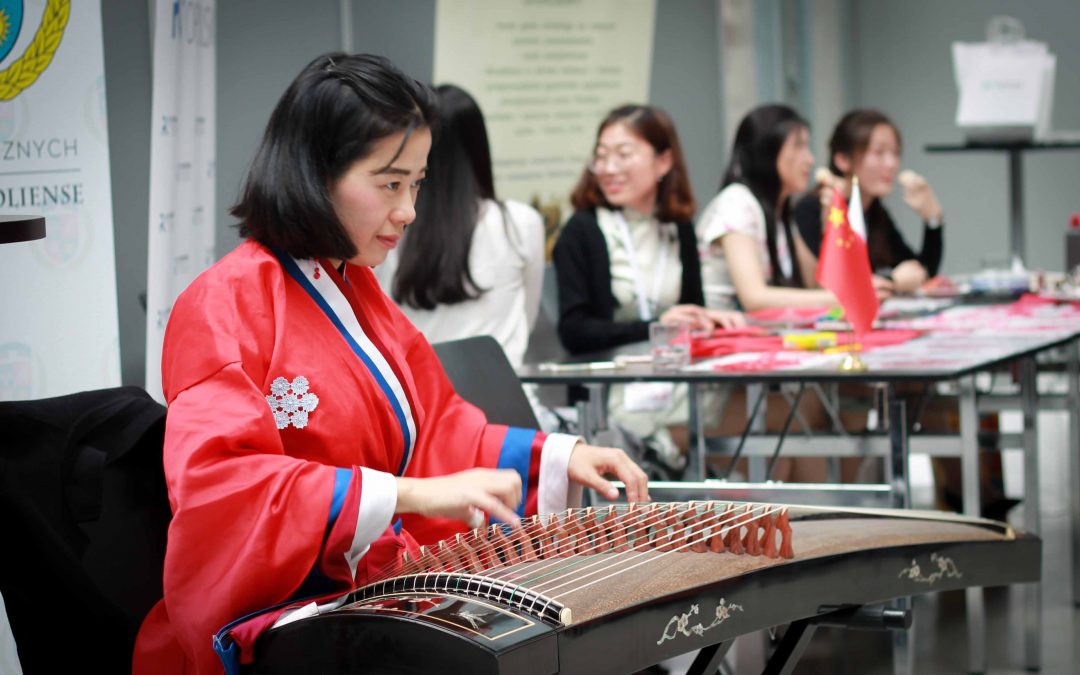
Chinese New Year Celebration in the University of Opole Museum
The Year of the dog Have you ever wondered why every Chinese New Year has an animal zodiac accompanying it? On February 22 at 4 pm in the University Museum (Collegium Maius, ground floor, room 18) Yi-Ting Liao, Chinese language lecturer at our university, will tell...
